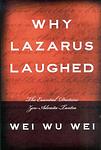Eugene O'Neill
Eugene O'Neill was an American playwright and Nobel laureate in Literature. His plays were among the first to introduce into American drama techniques of realism earlier associated with Russian playwright Anton Chekhov, Norwegian playwright Henrik Ibsen, and Swedish playwright August Strindberg. O'Neill's body of work includes classics such as 'Long Day's Journey Into Night,' 'The Iceman Cometh,' and 'A Moon for the Misbegotten.' He is widely regarded as one of the greatest dramatists in American history.
Books
This list of books are ONLY the books that have been ranked on the lists that are aggregated on this site. This is not a comprehensive list of all books by this author.
-
1. Long Day's Journey Into Night
"Long Day's Journey Into Night" is a semi-autobiographical play that explores the complex dynamics of a family tormented by addiction and regret. The narrative follows the Tyrone family, composed of two parents and their two adult sons, over the course of a single day. As the day progresses, the family members engage in soul-baring conversations that reveal their individual struggles with alcohol and drug addiction, their deep-seated resentments, and the love that binds them together despite their flaws. The play is a poignant examination of the human condition, familial bonds, and the destructive power of addiction.
-
2. Mourning Becomes Electra
"Mourning Becomes Electra" is a trilogy of plays that retells the Oresteia story of the House of Atreus in a modern American setting. The narrative explores the themes of revenge, obsession, and guilt within the Mannon family, who are haunted by a dark, cursed past. The plot follows the aftermath of the American Civil War, with the characters struggling to escape their tragic fate, ultimately leading to their downfall.
-
3. The Iceman Cometh
"The Iceman Cometh" is a play set in a New York City bar in 1912, featuring a group of down-and-out alcoholics who spend their days in a state of drunken stupor, telling tall tales and dreaming of better futures. The arrival of a former patron, now sober, disrupts their routine as he insists on forcing them to face the harsh realities of their lives and abandon their delusions. The play is a poignant exploration of despair, disillusionment, and the human capacity for self-deception.
-
4. Desire Under The Elms
This play is a tragic tale set on a New England farm, exploring themes of passion, family conflict, and the destructive power of desire. The narrative centers around an aging father, his young wife, and his son from a previous marriage. The complex relationships between these characters are strained further by issues of inheritance and the son's romantic feelings towards his father's new wife. As jealousy and desires escalate, the characters are driven to extreme actions, leading to a devastating conclusion. The work delves deep into the human psyche, examining the dark and often destructive nature of desire and the consequences of pursuing one's deepest wants at the expense of others.
-
5. Lazarus Laughed
"Lazarus Laughed" is a play that explores the transformation of Lazarus after being raised from the dead by Jesus Christ. Rather than focusing on the miracle itself, the narrative delves into the profound psychological and spiritual change within Lazarus, who emerges from the tomb with an unshakable peace and a contagious laughter, signifying his transcendence over the fear of death. As he shares his newfound enlightenment with those around him, he faces both admiration and opposition, challenging the societal norms and religious dogmas of his time. The play is a philosophical meditation on the meaning of life and death, the power of joy, and the potential for human beings to live free from the paralyzing grip of fear.
-
6. Strange Interlude
"Strange Interlude" is a Pulitzer Prize-winning play that delves into the complex inner lives and psychological struggles of its characters over a span of several decades. The narrative revolves around Nina Leeds, a woman haunted by her father's oppressive influence and her lover's death in World War I. As she seeks solace in various relationships, including a troubled marriage and an affair, the play employs unconventional techniques such as soliloquies and asides to reveal the characters' private thoughts and motivations. This exploration of themes such as mental illness, infidelity, and the search for meaning in the interwar period showcases the characters' intricate emotional landscapes and the societal pressures they navigate.





